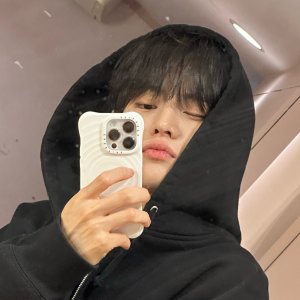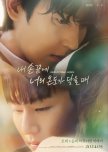beautiful and sweet but irritatingly short
Time of Fever is a heartwarming spin-off of Unintentional Love Story that offers a glimpse into the earlier lives of Hotae and Donghee. While the series is brief, it effectively complements the original narrative and provides a satisfying conclusion.
The production value, though different from Unintentional Love Story, adds a unique charm to the series. The color grading and lighting direction, particularly during Hotae's hospital scene, were expertly used to convey their emotions.
Side note: If you didn't catch it the first time, on Episode 6, where Hotae was in the hospital, when he started talking to Donghee, the initial color is bluish representing "sadness" especially Donghee left him, but later on it was mixed with a more yellowish light to represent happiness. But when the call ended, it revert back to bluish because he's sad again. I am talking about this too much because I was in awe when I catch that.
While the series can be confusing for those unfamiliar with Unintentional Love Story, it offers a satisfying ending that speaks volumes through nonverbal communication. Hotae's actions, while somewhat questionable, are understandable given his emotional state.
The cameo appearances and familiar locations add to the nostalgic experience. The decision to keep the series concise and focused on the central relationship was a wise one.
Overall, Time of Fever is a well-crafted spin-off that provides a satisfying conclusion to the story of Hotae and Donghee. While it may be best enjoyed after watching Unintentional Love Story, it offers a heartwarming and fulfilling viewing experience.
The production value, though different from Unintentional Love Story, adds a unique charm to the series. The color grading and lighting direction, particularly during Hotae's hospital scene, were expertly used to convey their emotions.
Side note: If you didn't catch it the first time, on Episode 6, where Hotae was in the hospital, when he started talking to Donghee, the initial color is bluish representing "sadness" especially Donghee left him, but later on it was mixed with a more yellowish light to represent happiness. But when the call ended, it revert back to bluish because he's sad again. I am talking about this too much because I was in awe when I catch that.
While the series can be confusing for those unfamiliar with Unintentional Love Story, it offers a satisfying ending that speaks volumes through nonverbal communication. Hotae's actions, while somewhat questionable, are understandable given his emotional state.
The cameo appearances and familiar locations add to the nostalgic experience. The decision to keep the series concise and focused on the central relationship was a wise one.
Overall, Time of Fever is a well-crafted spin-off that provides a satisfying conclusion to the story of Hotae and Donghee. While it may be best enjoyed after watching Unintentional Love Story, it offers a heartwarming and fulfilling viewing experience.
Was this review helpful to you?






